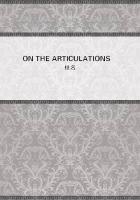"But here's the boy; look at his head and face," said the excited Master Hugh; _"they_ show _what_ has been done."But Watson insisted that he was not authorized to do anything, unless _white_ witnesses of the transaction would come forward, and testify to what had taken place. He could issue no warrant on my word, against white persons; and, if I had been killed in the presence of a _thousand blacks_, their testimony, combined would have been insufficient to arrest a single murderer. Master Hugh, for once, was compelled to say, that this state of things was _too bad;_ and he left the office of the magistrate, disgusted.
Of course, it was impossible to get any white man to testify against my assailants. The carpenters saw what was done; but the actors were but the agents of their malice, and only what the carpenters sanctioned. They had cried, with one accord, _"Kill the nigger!" "Kill the nigger!"_ Even those who may have pitied me, if any such were among them, lacked the moral courage to come and volunteer their evidence. The slightest manifestation of sympathy or justice toward a person of color, was denounced as abolitionism; and the name of abolitionist, subjected its bearer to frightful liabilities. "D--n _abolitionists,"_ and _"Kill the niggers,"_ were the watch-words of the foul-mouthed ruffians of those days. Nothing was done, and probably there would not have been any thing done, had I been killed in the affray. The laws and the morals of the Christian city of Baltimore, afforded no protection to the sable denizens of that city.
Master Hugh, on finding he could get no redress for the cruel wrong, withdrew me from the employment of Mr. Gardiner, and took me into his own family, Mrs. Auld kindly taking care of me, and dressing my wounds, until they were healed, and I was ready to go again to work.
While I was on the Eastern Shore, Master Hugh had met with reverses, which overthrew his business; and he had given up ship building in his own yard, on the City Block, and was now acting as foreman of Mr. Walter Price. The best he could now do for me, <246>was to take me into Mr. Price's yard, and afford me the facilities there, for completing the trade which I had began to learn at Gardiner's. Here I rapidly became expert in the use of my calking tools; and, in the course of a single year, I was able to command the highest wages paid to journeymen calkers in Baltimore.
The reader will observe that I was now of some pecuniary value to my master. During the busy season, I was bringing six and seven dollars per week. I have, sometimes, brought him as much as nine dollars a week, for the wages were a dollar and a half per day.
After learning to calk, I sought my own employment, made my own contracts, and collected my own earnings; giving Master Hugh no trouble in any part of the transactions to which I was a party.
Here, then, were better days for the Eastern Shore _slave_. Iwas now free from the vexatious assalts{sic} of the apprentices at Mr. Gardiner's; and free from the perils of plantation life, and once more in a favorable condition to increase my little stock of education, which had been at a dead stand since my removal from Baltimore. I had, on the Eastern Shore, been only a teacher, when in company with other slaves, but now there were colored persons who could instruct me. Many of the young calkers could read, write and cipher. Some of them had high notions about mental improvement; and the free ones, on Fell's Point, organized what they called the _"East Baltimore Mental Improvement Society."_ To this society, notwithstanding it was intended that only free persons should attach themselves, I was admitted, and was, several times, assigned a prominent part in its debates. I owe much to the society of these young men.
The reader already knows enough of the _ill_ effects of good treatment on a slave, to anticipate what was now the case in my improved condition. It was not long before I began to show signs of disquiet with slavery, and to look around for means to get out of that condition by the shortest route. I was living among _free_<247 MY CONDITION IMPROVES>_men;_ and was, in all respects, equal to them by nature and by attainments. _Why should I be a slave?_ There was _no_ reason why I should be the thrall of any man.
Besides, I was now getting--as I have said--a dollar and fifty cents per day. I contracted for it, worked for it, earned it, collected it; it was paid to me, and it was _rightfully_ my own;and yet, upon every returning Saturday night, this money--my own hard earnings, every cent of it--was demanded of me, and taken from me by Master Hugh. He did not earn it; he had no hand in earning it; why, then, should he have it? I owed him nothing.
He had given me no schooling, and I had received from him only my food and raiment; and for these, my services were supposed to pay, from the first. The right to take my earnings, was the right of the robber. He had the power to compel me to give him the fruits of my labor, and this power was his only right in the case. I became more and more dissatisfied with this state of things; and, in so becoming, I only gave proof of the same human nature which every reader of this chapter in my life--slaveholder, or nonslaveholder--is conscious of possessing.
To make a contented slave, you must make a thoughtless one. It is necessary to darken his moral and mental vision, and, as far as possible, to annihilate his power of reason. He must be able to detect no inconsistencies in slavery. The man that takes his earnings, must be able to convince him that he has a perfect right to do so. It must not depend upon mere force; the slave must know no Higher Law than his master's will. The whole relationship must not only demonstrate, to his mind, its necessity, but its absolute rightfulness. If there be one crevice through which a single drop can fall, it will certainly rust off the slave's chain.















